Temporary accommodationpublished at 14:16 BST 12 June 2018
Tory MSP Jamie Greene seeks a response to Crisis report indicating the number of people living in temporary hostel and B&B accommodation in Scotland has risen.
The Health Committee takes evidence on Scottish government's draft suicide prevention action plan
Topical questions cover childcare and temporary accommodation
The annual statement on Scottish greenhouse gas emissions is made
Higher and Further Education Minister Shirley-Anne Somerville gives a ministerial statement on student support
MSPs debate improving the lives of Gypsy/Travellers
A Tory MSP leads a debate on the cystic fibrosis drug Orkambi
Louise Wilson and Craig Hutchison
Tory MSP Jamie Greene seeks a response to Crisis report indicating the number of people living in temporary hostel and B&B accommodation in Scotland has risen.
Scottish Lib Dem leader Willie Rennie says the NDNA is not satisfied, and they are not alone as the Accounts Commission have concerns, as well as Fair Funding for Kids and the Child Minding Association.
Mr Rennie asks if the minister understands the scale of anxiety around this.
The minister insists she does understand this and insists the concerns will be addressed.
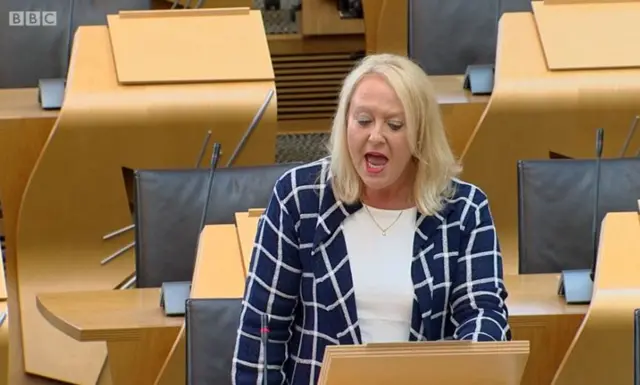
Tory MSP Alison Harris
Tory MSP Alison Harris raises concerns set out by Audit Scotland about analysing the delivery.
"I am confident that we will deliver the 1140 hours," Ms Todd responds.
The minister also points to mechanisms in place to ensure delivery and confirms the impact will be monitored.
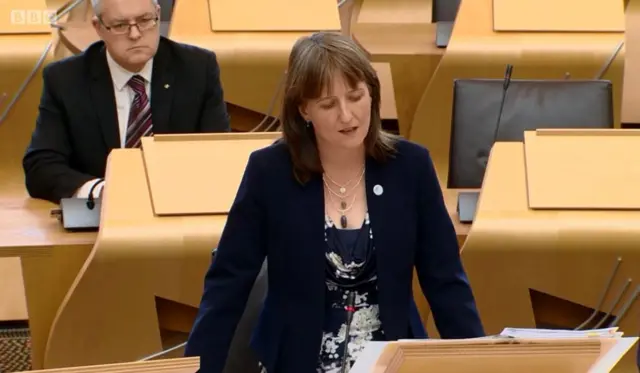 Image source, bbc
Image source, bbcChildcare and Early Years Minsiter Maree Todd
Childcare and Early Years Minister Maree Todd highlights the "landmark deal with COSLA".
Mr Gray says the concerns of the NDNA are not addressed by the COSLA deal.
The minister says she met with the NDNA this morning and cites rates relief which will support this sector.
Mr Gray hits back saying the NDNA have so little confidence in the government's ability to deliver the expansion in childcare.
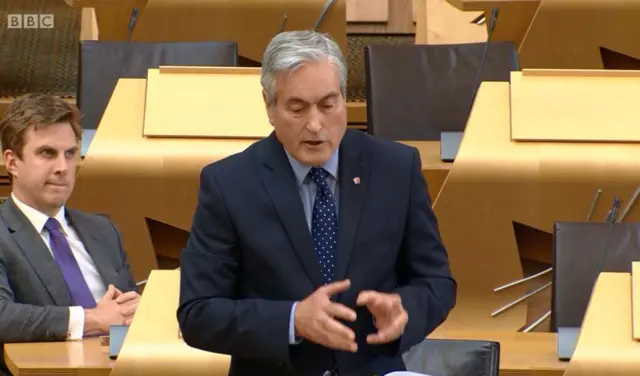 Image source, bbc
Image source, bbcLabour MSP Iain Gray
The Labour MSP calls for action now on the existing entitlement.
Ms Todd insists the government is engaging with the sector regularly and says the survey was done before the deal with COSLA.
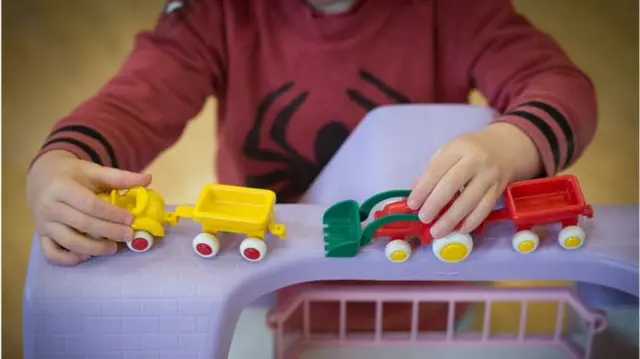 Image source, Getty Images
Image source, Getty ImagesA survey of more than 200 private nurseries has found that less than a third are likely to offer the Scottish government's recommended free hours.
Ministers have pledged to increase the number of paid-for hours for three and four-year-olds from 600 to 1,140 hours a year by 2020.
But the National Day Nurseries Association (NDNA) said the policy was "at risk" because of a lack of funding.
The Scottish government said nearly £1bn was being put into the policy.
Labour MSP Iain Gray asks the Scottish government how it plans to meet its 2020 target for childcare provision, in light of a recent survey that found that only 30% of private nurseries are likely to offer the full 1,140 hours of funded early learning and childcare.
 Image source, Thinkstock
Image source, Thinkstock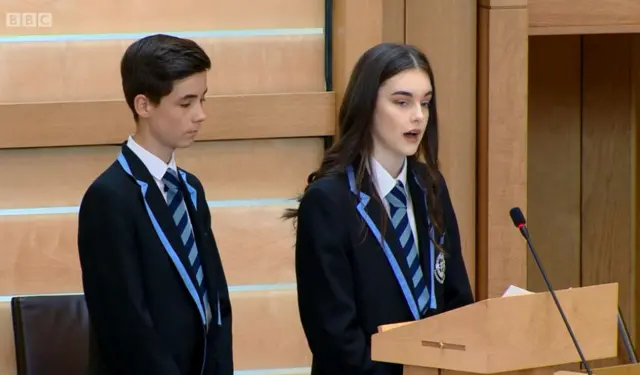 Image source, bbc
Image source, bbcMegan Quinn and Rhys Lambert, pupils at St Columba’s High School, Gourock, and ambassadors to the Anne Frank Trust UK
Megan Quinn and Rhys Lambert, pupils at St Columba’s High School, Gourock, and ambassadors to the Anne Frank Trust UK, external deliver today's time for reflection.
Topical questions on funded childcare and the Crisis report on homelessness and temporary accommodation will still go ahead after lunch.
BUT........ the statement of the National Council of Rural Advisors will no longer take place today.
Instead topical questions will be followed by the statement on Scottish Greenhouse Gas Emissions 2016.
To be followed by a statement on student support.
 Image source, Thinkstock/Getty Images/BBC
Image source, Thinkstock/Getty Images/BBCMSPs will then debate ‘Improving the lives of Scotland's Gypsy/Travellers’.
Finally, Tory MSP Maurice Corry holds a debate on Orkambi, the drug for cystic fibrosis.
Topical questions are on nurseries expressing concerns about their ability to offer funded childcare and a Crisis report on homelessness and temporary accommodation.
There are two ministerial statements: one on the National Council of Rural Advisors and the other on Scottish Greenhouse Gas Emissions 2016.
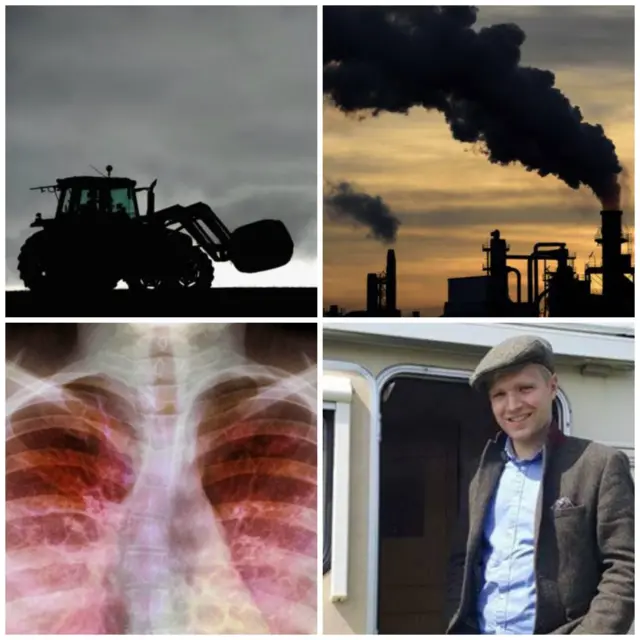 Image source, Getty Images/David Donaldson/SPL
Image source, Getty Images/David Donaldson/SPLRural advisors, greenhouse gas emissions, improving the lives of Gypsy/Travellers and cystic fibrosis dominate the chamber this afternoon
MSPs will then debate ‘Improving the lives of Scotland's Gypsy/Travellers’.
Finally, Tory MSP Maurice Corry holds a debate on Orkambi, the drug for cystic fibrosis.
Allow X content?
This article contains content provided by X. We ask for your permission before anything is loaded, as they may be using cookies and other technologies. You may want to read X’s cookie policy, external and privacy policy, external before accepting. To view this content choose ‘accept and continue’.
Allow X content?
This article contains content provided by X. We ask for your permission before anything is loaded, as they may be using cookies and other technologies. You may want to read X’s cookie policy, external and privacy policy, external before accepting. To view this content choose ‘accept and continue’.
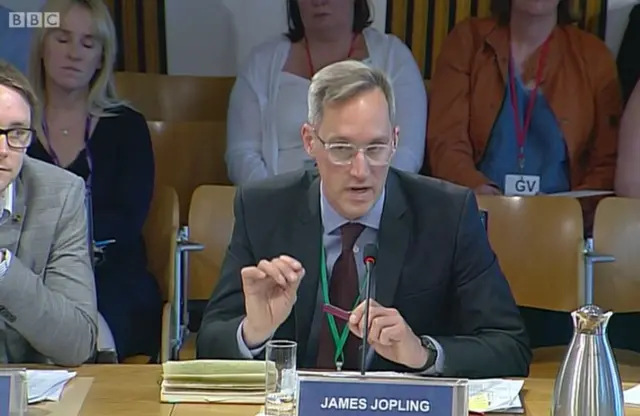
James Jopling of Samaritans
Convener Lewis Macdonald asks about funding and resources, and whether this should be included in any plan.
If we want to see a step change, we need resources to build the steps, states James Jopling of Samaritans.
The loss of ring-fencing since 2002 has had an impact, he explains.
SAMH's Craig Smith backs resources and timescale being includes for each action in the strategy.
Dan Proverbs from Brothers in Arms backs ring-fencing of funds and he also warns against relying on the third sector raising funds themselves.
NFU Scotland's Scott Walker calls for delivery across Scotland so no area is left behind.
SNP MSP Ash Denham wonders about evaluation of the action plan.
There was no formal evaluation of the last suicide prevention strategy which leaves us in a challenging place to identify which elements of the programme were successful, responds Mr Giugliano.
We need to ensure any evaluation is therefore built in from the outset.
SNP MSP Emma Harper raises the issue of the importance of engaging with children.
Ms Harper highlights the adverse childhood experiences cross-party group, external at Holyrood which meets for the first time tomorrow night.
She argues the suicide prevention plan must have areas focused specifically on children.
Toni Giugliano from the Mental Health Foundation Scotland explains 33% of young people experienced suicide thoughts, a "shocking figure".
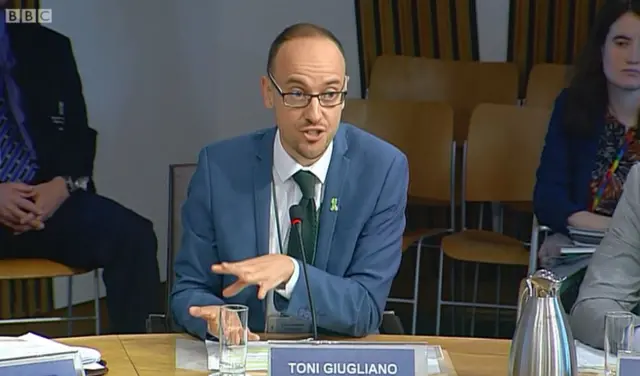 Image source, bbc
Image source, bbcToni Giugliano from the Mental Health Foundation Scotland
The resiliance programme in schools must be looked at, says Mr Giugliano.
"There is a lot that can be done in schools, there is a lot that can be done at home."
We need to make sure teachers are trained in delivering support for mental health, but too many are not he explains.
Dan Proverbs from Brothers in Arms calls for gender specific programmes in schools targeted at young males.
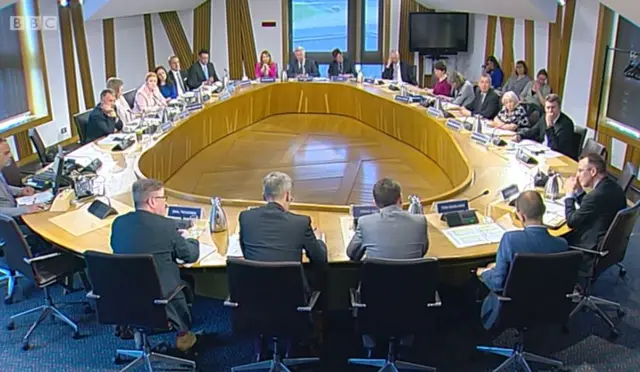
MHF Scotland's Toni Giugliano urges for a system where link workers can offer support to families affected by suicide.
He highlights that members of family of a person who has taken their own life often become a high risk for suicide too.
NFU Scotland's Scott Walker explains there is a greater stigma around mental health in rural areas because everyone knows everyone and people don't want their business known to others.
Not everyone who takes their own life has a diagnosable mental health problem, explains Craig Smith from SAMH, pointing to people being pushed to crisis point.
Dan Proverbs of Brothers in Arms says that men often hide their suicidal thoughts so families are often unaware.
This makes bereavement support even more vital because the family is in shock, he argues.
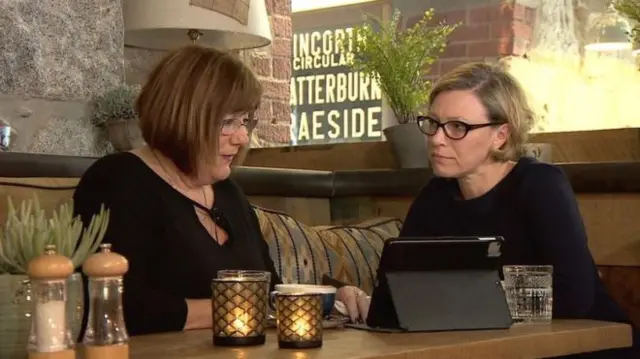 Image source, bbc
Image source, bbcDeanna Cruickshank, left, is being backed by Gillian Martin
Internet providers are being urged to take a tougher stance over websites encouraging people to take their own lives.
A mother who lost her daughter to suicide is now being backed by an MSP who has written to search engine and social media providers asking them to act.
Jo Cruickshank was 36 when she took her own life in August 2015.
Her mother Deanna, from Buckie, is being backed by MSP Gillian Martin.
Jo had made online searches of suicide methods before she died, and come across sites giving out such information.
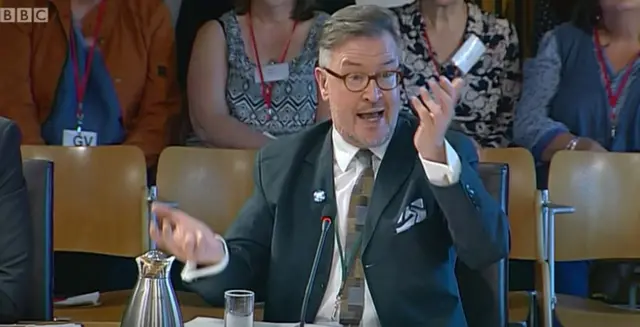 Image source, bbc
Image source, bbcDan Proverbs from Brothers in Arms
Dan Proverbs from Brothers in Arms explains he was dealing with the mother of a 17 year old boy who attempted to take his own life, because his best friend had taken his own life.
Mr Proverbs says luckily there was an intervention, but he adds they found the young man's laptop and every window that they opened was a search for how to take your own life.
He warns that mothers of 12 year olds to nine year olds have contacted him saying they have access to these websites.
There is nothing online that acts as resource to balance that out or combat it, he argues.
Allow X content?
This article contains content provided by X. We ask for your permission before anything is loaded, as they may be using cookies and other technologies. You may want to read X’s cookie policy, external and privacy policy, external before accepting. To view this content choose ‘accept and continue’.
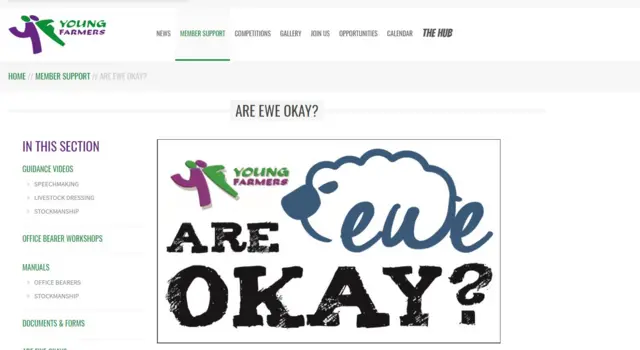 Image source, Scottish Association of Young Farmers Clubs
Image source, Scottish Association of Young Farmers ClubsThe Scottish Association of Young Farmers Clubs
Scott Walker from the National Farmers Union Scotland says putting in place the framework for that crisis response is even more difficult in rural areas.
Early intervention is key, he says and points to the work of the Scottish Association of Young Farmers Clubs, external.
Male members are more reticent about talking about mental health, he explains and he reitrates the importance of early intervention.
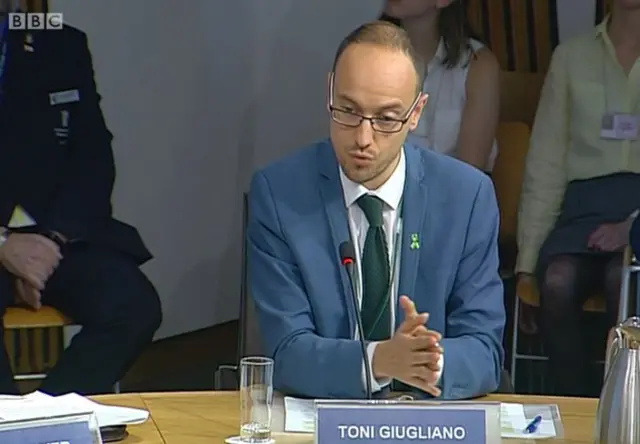
Toni Giugliano of MHF Scotland
People must receive a compassionate and empathetic response when they are in crisis, states Toni Giugliano.
He explains it is not uncommon for people in crisis to go for A&E, only to be told to visit to GP the next day.
This is a resource issue, he says, adding there are not enough mental health workers in A&E.
If a person's experience of the NHS is negative, they may not go back a second time, Mr Giugliano warns.
And yet if a person is not suicidal, they are often told to go home, he says.